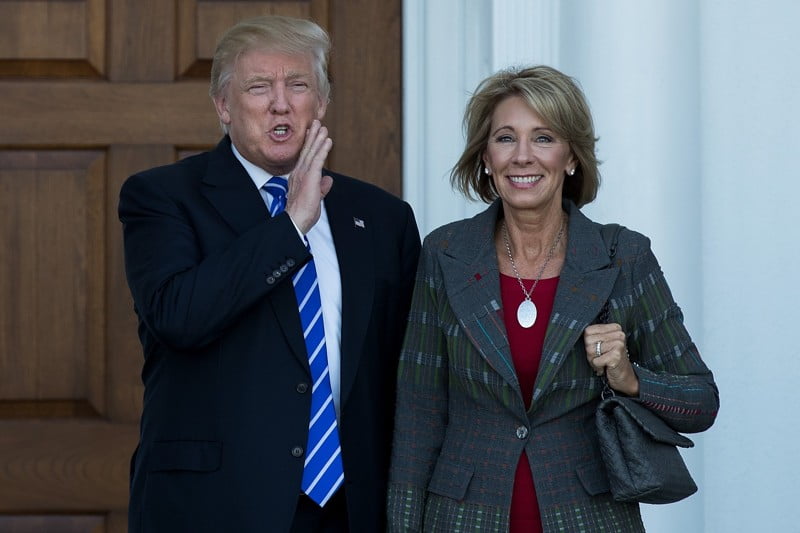
When I first began writing about schools, I thought teachers were a tad paranoid when they warned of covert campaigns to gut public education.
Now, I realize they were prescient.
Georgia just endured a bruising battle over a constitutional change that would have allowed the state to turn local schools deemed to be failing over to private management, including for-profit charter school companies that have dismal track records. Amendment 1 was defeated with 60 percent of Georgia voters rejecting the erosion of local control.
At the federal level, a billionaire with no classroom experience has been nominated to lead the agency in charge of improving public education. Betsy DeVos, a philanthropist and mega Republican donor, has dedicated herself to creating escape hatches out of public schools and weakening teacher unions.
“Traditional public schools are not succeeding,” she has said. “In fact, let’s be clear, in many cases, they are failing. That’s helped people become more open to what were once considered really radical reforms — reforms like vouchers, tax credits, and education savings accounts.”
DeVos has a champion in former Florida Gov. Jeb Bush, who opened a conference of his Foundation for Excellence in Education today decrying a monolithic and public education system intent on self-preservation and indifferent to the plight of low-income students.
“To the system, they are not individuals worthy of the best education available. They’re funding resources to be procured,” he said.
An elated Bush said DeVos, President-elect Donald Trump and the new Congress have the “real opportunity to bring wholesale disruption to education in America” by providing parents with greater choice.
I endorse disruption — if it leads to improvements. The problem with the choice movement, whether vouchers, charters or education savings accounts, is that it hasn’t raised the academic performance of at-risk students. Georgia has 115 charter schools, which, on average, are lower quality than traditional public schools.
In her home state of Michigan, DeVos has invested money and effort in expanding charter options with little to show for it. While Detroit now ranks second to New Orleans in charter school enrollment, half of the schools perform about the same or worse than traditional schools.
DeVos regards choice as paramount, even bad choice. Her family derailed an effort to require more oversight of Detroit’s troubled charter sector, wielding $1.45 million in campaign contributions to dissuade lawmakers.
She overlooks the role of family, community and environmental factors in learning. The academic challenges of America’s neediest children — challenges magnified by addiction, homelessness, broken families, poor health, and joblessness — are daunting for any school. As Georgia State University education researcher Jarod Apperson has pointed out, “There are only about 20 good charter schools in the whole state today and it took almost two decades to get here.”
As a young reporter, I covered state legislatures, city councils and county commissions. Puzzled by the frequent decisions that contradicted voter sentiment, I realized political affiliation mattered, but so did personal and professional affiliations. Friends, family and colleagues influence politicians. Constituents are often an abstract; next-door neighbors and lodge brothers are real. If you spend a lot of time swapping stories with billionaires, their perspective informs your views.
Neither Trump nor DeVos sent their children to public schools and have little regard for what they call “failing government schools.” But nine out of 10 American send their children to public schools, and voters have consistently resisted using tax dollars to underwrite private school tuition.
The U.S. Department of Education was once seen as an ally of public education. It may now become an adversary.
[Source:-AJC]





